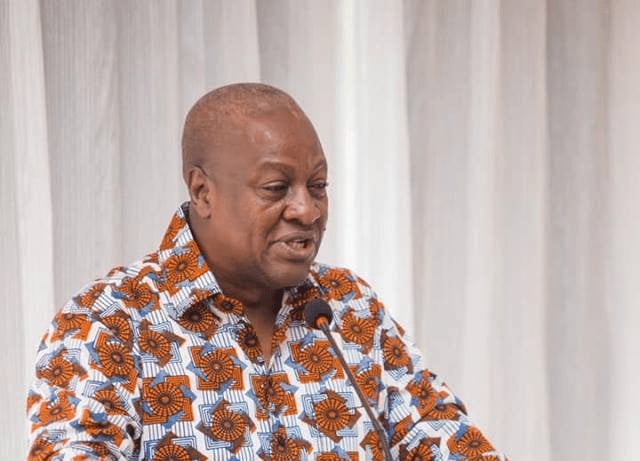President John Mahama’s initial nominations for regional ministerial positions showcase a blend of experience and expertise across various sectors, including healthcare, media, education, local governance, and law. These nominees, pending parliamentary approval, will play crucial roles in shaping regional development and implementing government policies at the local level. The inclusion of three women among the ten nominated underscores a commitment to gender representation in leadership positions. The diverse backgrounds of these individuals suggest a focus on assembling a team capable of addressing the multifaceted challenges and opportunities within their respective regions.
Dr. Frank Amoakohene, nominated for the Ashanti Region, brings a wealth of experience in healthcare and public service, complemented by his academic achievements in medicine and business administration. His current role as the Ashanti Regional Secretary of the NDC further demonstrates his political engagement and understanding of the region’s dynamics. Mr. James Gunu, nominated for the Volta Region, brings his extensive media background and expertise in development communication and local governance to the table. His experience as a former Municipal Chief Executive provides him with valuable practical knowledge of local administration.
Mrs. Rita Akosua Adjei Awatey, nominated for the Eastern Region, stands out as a distinguished leader with a strong track record in local governance, education, and community development. Her ongoing pursuit of a PhD in Migration, coupled with her experience as a Presiding Member and women’s empowerment advocate, positions her to address critical issues within the region. Mr. John Kwadwo Gyapong, nominated for the Oti Region, combines his business acumen with his experience as a former Member of Parliament, providing him with a deep understanding of the legislative process and the needs of his constituency.
Mr. Akamugri Donatus Atanga, nominated for the Upper East Region, brings his expertise in human rights and education to the forefront. His prior experience as a coordinator of the National School Feeding Programme and as a Presiding Member further strengthens his qualifications for this role. Mr. Ali Adolf John, nominated for the Northern Region, is a seasoned education professional with experience across various levels of the Ghana Education Service. His background in education and technology makes him well-suited to contribute to the development of the region’s educational infrastructure and human capital.
Madam Charity Gardiner, nominated for the Ahafo Region, brings her business acumen and human resource expertise to the table. Her commitment to girl child education and empowerment, coupled with her experience in the non-profit sector, highlights her dedication to social development within the region. Mr. Salisu Be-Awuribe, nominated for the Savannah Region, possesses a diverse skill set encompassing law, valuation, and development expertise. His previous experience as a District Chief Executive underscores his practical understanding of local governance and development challenges.
Madam Linda Ocloo, nominated for the Greater Accra Region, brings her experience as a Member of Parliament and her background in banking and finance to this crucial role. Her understanding of the legislative process and financial management will be invaluable in addressing the complex issues facing the nation’s capital region. Finally, Mr. Ibrahim Tia, nominated for the North East Region, brings his expertise in public health finance and local government to the forefront. His experience with the National Health Insurance Scheme and his background in information and communication technology position him to contribute significantly to the development of the region’s healthcare infrastructure and systems.
These nominations reflect a strategic effort to select individuals with diverse backgrounds and experiences, capable of effectively addressing the unique challenges and opportunities present in each region. The emphasis on education, healthcare, local governance, and development expertise suggests a focus on improving the lives of citizens and promoting sustainable growth within the regions. The nominees’ experience in various sectors, from business and education to law and healthcare, provides a comprehensive approach to regional development.
The inclusion of women in key leadership positions demonstrates a commitment to gender representation and inclusivity in government. The nominated women bring a wealth of experience in areas such as local governance, education, and community development, ensuring a diverse range of perspectives and expertise within the regional leadership. The emphasis on local governance experience, seen in several of the nominees, suggests a focus on strengthening local institutions and empowering communities to participate in development initiatives.
The nominees’ educational qualifications, ranging from bachelor’s degrees to PhDs and professional certifications, underscore the importance of knowledge and expertise in effectively managing the complex challenges of regional governance. Their academic backgrounds in fields such as medicine, law, education, and business administration provide a strong foundation for informed decision-making and policy implementation. The emphasis on practical experience, including prior service as Members of Parliament, District Chief Executives, and Presiding Members, highlights the value of hands-on experience in navigating the complexities of local governance.
The nominees’ involvement in community development and social advocacy, particularly in areas such as girl child education and women’s empowerment, demonstrates a commitment to social justice and inclusive development. Their dedication to improving the lives of marginalized communities will be crucial in addressing social inequalities and promoting equitable access to opportunities. The nominees’ varied backgrounds and experiences reflect the diverse needs and challenges of the different regions, ensuring that each region’s specific context is considered in development planning.
In conclusion, President Mahama’s initial nominations for regional ministerial positions represent a carefully curated selection of individuals with diverse backgrounds, expertise, and a commitment to public service. Their combined experience in healthcare, media, education, local governance, law, and community development promises a comprehensive approach to regional development. The inclusion of women in key leadership positions and the emphasis on local governance experience further underscore a commitment to inclusive and effective governance. Pending parliamentary approval, these nominees will play a crucial role in shaping the future of their respective regions and contributing to the overall development of Ghana.














